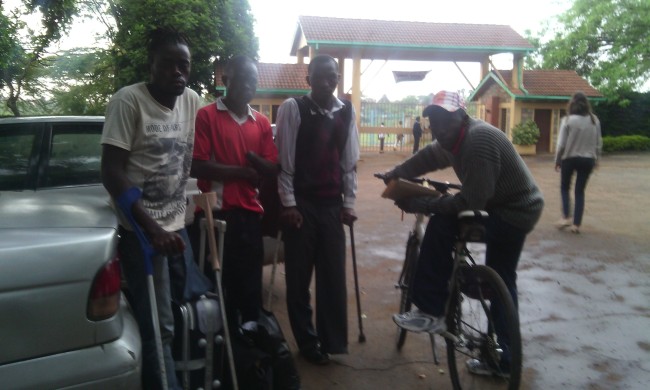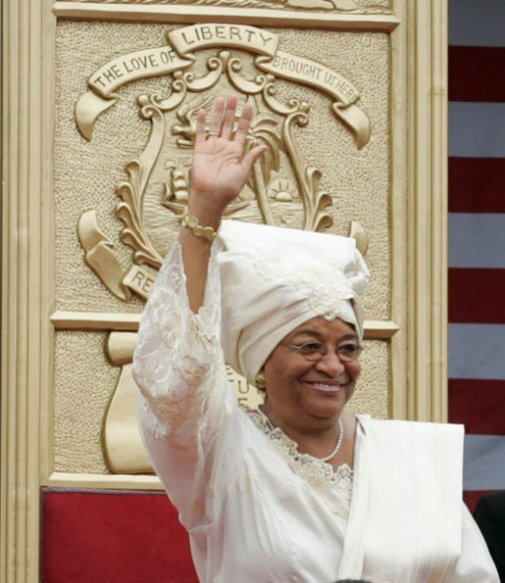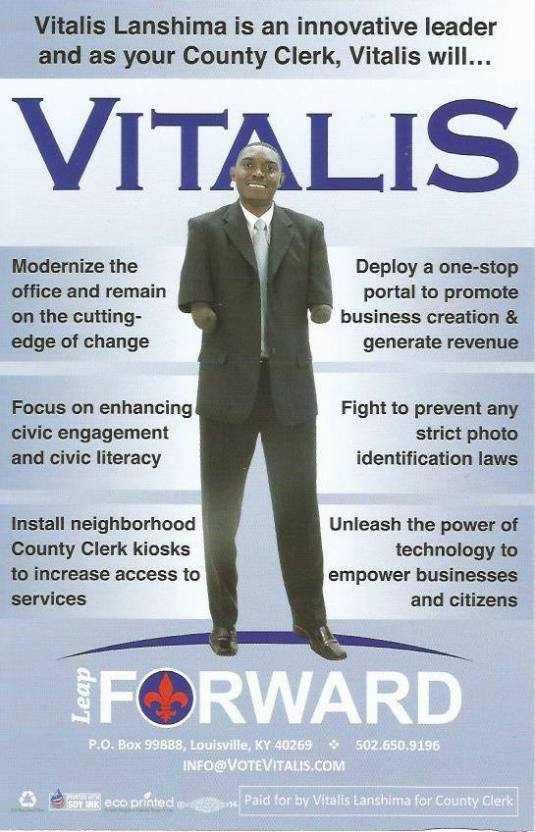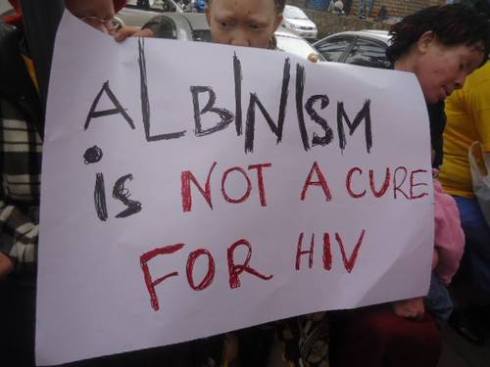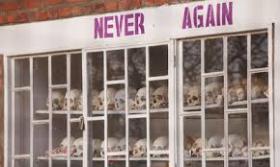
The infamous post-election violence after 2007 general elections stamp Kenya in the map and limelight in the world for all the wrong reasons.This left thousands killed,hundreds of thousands homeless and internally displaced people camps all over.While most people attributed the war to the just concluded elections,I believe and I know that there are other deep-rooted issues that were there,but were sparked by the election results.
The post-election violence affected me on a personal level.This came in 3 portions:First I was studying in an area where I had to reach Nakuru (a town 170km from home) and it was severely hit by the war.Considering that January 2008 I was going back to school,I was traumatized through the whole journey from home to school.Particularly that I was and I am from a community that was targeted.Needless to say that I got to school safe,I still remember that I was traumatized throughout the whole term imagining the worst that could happen.
Secondly this violence affected my friends in school.I remember one day MARY(not her real name) and I were going to the dorms in school.We could see Lanet burning and we were certain that Mary’s home was on fire too as they lived in lanet.Later we heard of chilling stories of how some of the students homes were burnt and how their sibling were killed,raped or threated.
Thirdly my maternal aunt lived in Eldama Ravine.That town is predominantly of another tribe while we are of another tribe.During the post election violence this were the two main waring communities in the Rift valley.My aunt was attacked by their best family friends and how they fled remains a miracle.They have since fled that town and one of their child was left in shock and to date the child cannot stand bangs,falling objects or even screams,despite the counseling sessions.
Despite the tribulations,this was not the first post-election violence.An old professor who is a great friend of mine tells me that the 1992 clashes in Kenya were more devastating that the 2007/2008.Probably because there was just one state controlled t.v station then in Kenya,they were not aired much.That is debatable though considering that I was a few months old in 1992.
When Kenya coughs,Africa in general and the East African Community catches a fever.Not only is it an economic giant but well known for innovations e.g M.PESA(mobile money transfer),athletics and great tourism attraction sites.It was unbelievable when we got into the bloody warfare and eminent people panicked and fueled by goodwill,they flocked trying to fix our problems.The likes of Koffi Annan,Desmond Tutu and calls from the international community.
What ails Kenya though?
I am not a know it all but I would say that this are among the major ailments that face my country:
1.Tribalism.
It is so unfortunate that the artificial boundaries of mere tribal inclinations have been our major cancer.For starters our tribes are so related in terms of practices,and beliefs.Traditional African society share very many aspects.In Kenya we have 42 tribes.The catch comes in in terms of naming though.My name for instance is Wanja.Even without asking,it is obvious I am a Bantu,and specifically a Kikuyu,as that name is predominantly Kikuyu.No doubt.Tribe is not Tribalism,and so while I am a proud Kikuyu I harbor no feeling of hate or vengeance towards any other community in Kenya.But that is not the case with Kenyans,in most cases,ones tribe here determines whether one will get a job,one will be elected in an office and in extreme cases whether one will be killed or should live.Tribes equally through the “mob psychology” phenomenon decides who gets into office and who does not.A better explanation of why we have poor leadership.It is a democracy they say,the majority wins.Stereotypes mainly from our parents and socialization cliques has equally contributed greatly to tribalism,it is high time we dialogue together,intermarry and more so respect our differences.
2.Inequality
One ,J.M Kariuki, who has since died,once said that Kenya has “ten millionaires,and ten million beggars”,though his words were not taken kindly but the then leadership,they have since been manifested and remain nothing but the truth.He was a prophet some say.With increased cost of living for the poor,the now increased VAT that taxes basics like Maize,milk and sanitary towels,then the poor will still get poorer.On the other hand the rich have continued being rich,not necessarily through hardwork bit through unorthodox means.This inequality and greed has bred contempt towards them.A case in point is when a group of Kenyans carried pigs outside parliament buildings that symbolized greed.After the investigations on the causes of the post poll violence in 2007/2008,one of the commissions suggested that among the major contributors of that violence was Unemployment as the people involved had “nothing to lose”.It is then paramount to address the youth bulge in Kenya.With approximated 65% of the population being youths,problems of unemployment per-disposes them to idleness and chances of engaging in unlawful acts.
3.Leadership.
The fish rots from the head is what one African proverb states.While the leadership is democratic(after every 5 years),it takes more to take things happen.For instance immediately after independence,the founding father declared that the priority areas were elimination of DISEASE,POVERTY and IGNORANCE.Fast forward to 2013,that is 50 years down the line,this 3 challenges are still there:loud and clear.What makes it worse is that majority of the Asian tigers ie Malaysia and South Korea were in the same level with kenya back then.Now they have moved so far so fast and we actually can never compete.The priorities of our leadership then becomes questionable.Why have they never sat and focused on development that is sustainable and for all?why are they all in a campaign mode a day after elections?why can’t they meaningfully engage young people?making one step forward then 10 steps backwards is a sign of political visual impairment.Our leaders rarely motivate us,they are no longer role models and do not present hope to us.
4.Historical grievances.
I personally have historical grievances with very close people in my life.They have hurt me and up-to now it is so hard for me to discuss the issues with them.After many years of reflection and talking to a few close friends,they challenged me to talk to them,I have not done it but I know it will take a huge step of faith and courage to do it.Holding grievances is not healthy I know.It is a cause of anger and ill feelings.I imagine how many people have ill feelings and grievances and injustices against each other.It could be against political leaders or against clans and communities.While I have immense faith on the Chief Justice Mutunga lead Judiciary,it is high time people reconciled and talked.That way the negative peace that we harbor will be turned into positive peace.In the recent concluded elections there were a lot of peace messages.While they all meant well,who will address the root cause of this headache?the headache of peace that can be triggered into bloodshed any time?In Rwanda and the infamous genocide,they established Gacaca courts.While there is a can of worms in regards to the pros and cons of this courts,they have contributed huge milestones in the healing and reconciliation in Rwanda.While some are to apologize to the family members of those they killed,others are forced to help them rebuild their lives and homesteads.Seeming hard at first,they have continued to live well in harmony.
Way-forward?
Kenya needs a home-grown policy on how we shall heal and reconcile,so as to move forward.Reconciliation that shall iron out our differences and embrace our diversities that come with belonging to a different tribe and equally holding divergent views.While justice in the courts should be upheld and promoted,dialogue,harmony and reconciliation should equally be upheld and promoted.This shall only start at individual level.In knowing that I have ironed out differences with my enemies and I am willing to walk with them.Then the multiplier effect will be felt across the counties and before we know it,it shall no longer be where I come from,who is my father and what is my dialect but it shall be about Kenya,upholding the rule of law and equal rights.
The role of young people equally cannot be underestimated.Being the majority in the population,they need to be seated at the tables of developing modalities and policies of reconciliation and implementation therein.As the youths in the 1950’s were the drivers in development for the Asian tigers,so should they be involved by and large in the healing process in Kenya.
Our leadership ideology equally needs to be re-examined.A favorite author once asked: “Democracy in poverty,or dictatorship in prosperity”,He was questioning if democracy gives better leaders or is it about numbers regardless of how one acquires them.Has democracy led to division in Kenya in the sense that people get numbers and thus being leaders?And if they are the choices of the people,why the poor performance?We need to ask hard questions for us to get answers we require.
While I reserve my opinions towards current court cases,and therein respect the courts,I would urge us to reconcile,forgive and forge forward for “Kenya is bigger than any of us”.
Wanja is a 22- year old youth leader and a pan-African.
Note to reader:Feel free to add your voice by commenting.Divergent views are accommodated,but should not be abusive,profane or promoting hate-speech.

